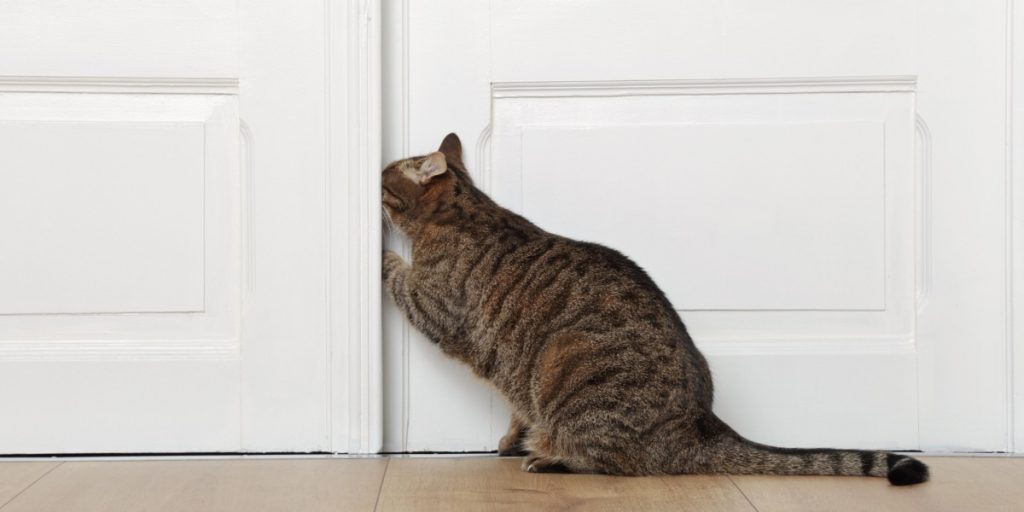Ever wondered why your cat can’t stand a closed door? Here’s why they paw, meow, and get frustrated when they can’t access certain spaces.
Others are reading now
If you’ve ever seen your cat react to a closed door, you’ve probably noticed their frustration. Cats will often meow loudly, scratch at the door, or even try to stick their paws under it.
But why do they dislike closed doors so much?
Experts say a mix of curiosity and instincts plays a major role.
According to Dr. Karen Sueda, a veterinary behaviorist, cats experience a bit of fear of missing out (FOMO) when faced with a closed door.
Also read
“They don’t know what’s on the other side and want to figure it out,” Sueda told Live Science.
Cats are naturally curious and territorial.
In the wild, their need to control their environment helps them stay safe. When a door is closed, they lose control over that space, which can lead to behaviors like pawing or meowing in frustration.
“Cats like to control access to spaces, their basic needs, and their territory,” explained cat behavior consultant Ingrid Johnson. This behavior is deeply rooted in their instincts as both predators and prey, where they need to feel secure and aware of their surroundings.
A closed door triggers what cat behaviorist Jane Ehrlich calls the “three terrible C’s” that cats hate: a lack of choice, control, and change. Even if they don’t want to interact with what’s behind the door, they still want to know what’s going on.
Cats also enjoy attention from their owners, which a closed door denies them.
A 2017 study published in Behavioural Processes found that most cats prefer human interaction over food or toys, so being shut out may add to their frustration.
Consistency is key to reducing your cat’s anxiety around closed doors. If you want to keep certain areas off-limits, like the dining room, keep it consistently off-limits rather than just when guests are over. This can help reduce stress for your cat, according to Johnson.
It’s also important to recognize when your cat’s reactions are more than just frustration. If you notice signs of distress, such as frantic meowing, flattened ears, or hissing, it might be time to check with a veterinarian to rule out any health concerns, Sueda advised.


